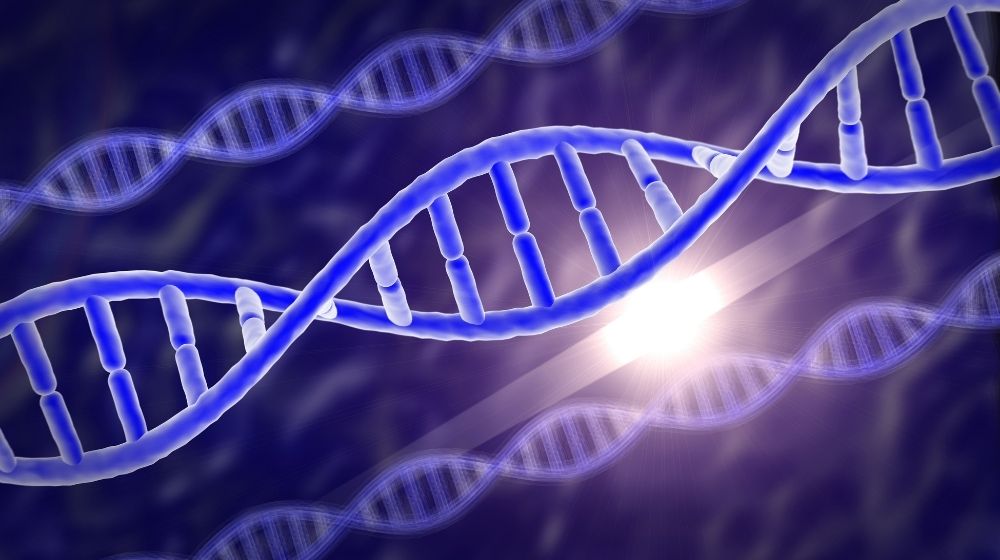Interested in improving your healthspan? adding natural sources of epigenetic adaptogens to your diet may help.
RELATED: Obesogenic Diet Drives Epigenetic Predisposition To Metabolic Disorders
In this article:
- What Are Adaptogens?
- What Are Epigenetic Adaptogens?
- Why Are Epigenetic Adaptogens Important?
- What Are the Sources of Epigenetic Adaptogens?
Everything You Need to Know About Epigenetic Adaptogens
What Are Adaptogens?
Adaptogens are nontoxic compounds that help regulate biochemical pathways. They improve balance to these pathways by promoting optimal physiological functioning.
Depending on the body’s need, it can boost or slow down certain pathway activities. So adaptogens act like a thermostat that kicks in and adjusts the room temperature when it’s too hot or too cold.
Adaptogens are more commonly studied in botanical medicine. Researchers identified adrenal adaptogens like ashwagandha root extract.
Preliminary studies show that this root extract helps reduce stress and anxiety. On top of that, it also helps regulate adrenal activity.
There are other contexts where adaptogens may be beneficial. One context that shows a lot of promise is in the field of epigenetics.
What Are Epigenetic Adaptogens?
Epigenetics is a field of study that focuses on gene expression. But instead of focusing on the genome and its structure, epigenetics is a field of study centered around the epigenome and focuses on the expression of genes.
What is the epigenome? This refers to the biochemical tags that regulate gene expression.
Researchers found that these chemical tags can attach themselves to DNA and its peripheral structures. When they attach themselves to specific sites on DNA, they can alter how the gene operates.
So epigenetic adaptogens are compounds that can promote balance in these chemical tags. One of the most common biochemical tags studied in epigenetics is DNA methylation.
This refers to a biological process where methyl groups are added to specific DNA sites. Over time, this can modify how genes function.
RELATED: The Role Of HDAC4 In Maintaining Epigenome Identity
Why Are Epigenetic Adaptogens Important?
There’s a growing interest in learning more about epigenetics and the epigenome because of their potential health interventions. There’s very little you can do to alter the genes you inherit, but your epigenome is another story.
Certain lifestyle and environmental factors can influence your epigenome. So there are things you can do to improve gene expression.
On top of that, research shows that epigenetic modifications may contribute to aging. Other studies also show that it triggers the development of chronic illnesses.
These illnesses include:
- Cardiovascular disease
- Type 1 diabetes
- Type 2 diabetes
- Obesity
- Autoimmune issues
- Certain types of cancer
Researchers are finding ways to modify the epigenome to help prevent and treat these illnesses. Epigenome strategies they’re also looking into are developing aging interventions to combat the onset of certain diseases.
In the meantime, there are lifestyle interventions that can help improve the epigenome. Increasing the levels of epigenetic adaptogens may help improve epigenetic modifications to the DNA.
What Are the Sources of Epigenetic Adaptogens?

Here are some natural dietary sources that serve as epigenetic adaptogens:
- Various berries – Berry variants such as strawberries, blackberries, and blueberries can help regulate methylation. They’re rich in compounds like quercetin, ellagic acid, and chlorogenic acid.
- Cruciferous vegetables – Kale, cabbage, broccoli, and other cruciferous veggies are rich in certain epigenetic adaptogens like sulforaphane.

- Fresh or dried Rosemary – Rosmarinic acid is an active ingredient in rosemary that also serves as a methylation adaptogen.
- Green tea – Green tea is rich in epigallocatechin gallate (EGCG). EGCG is an epigenetic adaptogen that helps regulate DNA methylation and telomerase inhibition.
- Shiitake mushrooms – These mushrooms help regulate DNA methylation.
- Turmeric – This Asian spice is rich in curcumin. Research shows that curcumin is an alternative epigenetic modulator.
So try to find ways to incorporate these foods into your diet to promote your epigenome. Many of these sources offer other health benefits as well. For example, shiitake mushrooms have anti-cancer properties.
Many cruciferous vegetables are also rich in vitamins, minerals, and fiber. So apart from balancing out your epigenome, they also help promote optimal functioning.
The field of epigenetics is full of promise. With the help of technology, researchers continue to gather more data about the epigenome and the different factors that influence it.
In the meantime, there are already epigenetic applications that can help you optimize your healthspan. For example, a biological age test can give you an accurate picture of your health.
It can also clue your doctor in on what health interventions may help you the most. If you’re interested in learning more about this, visit the TruDiagnostic website.
Which of the epigenetic adaptogens sources are you excited to include in your diet? Please share your thoughts with us in the comments section below.
Up Next:





